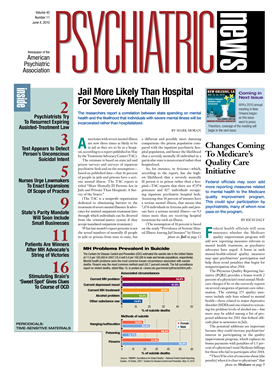Under repeated stress, the brain absorbs the first hit of the body's response but then reacts with a number of long-term changes in neurons in some very critical areas, said Bruce McEwen, Ph.D., speaking at the annual Amygdala Conference at the Uniformed Services University of the Health Sciences in Bethesda, Md., in April.
The brain gauges the seriousness of a stressor and decides, often in milliseconds, whether to snap into fight-or-flight mode or revert to behavior that is comforting in the short term but unhealthy over a lifetime, like smoking or overeating, said McEwen, the Alfred E. Mirsky Professor and head of the Harold and Margaret Milliken Hatch Laboratory of Neuroendocrinology at Rockefeller University in New York.
Cortisol is usually tagged as the hero or the villain when stress hits, depending on how long the stress lasts. In the short term, cortisol helps the organism adapt, promoting energy replenishment, immune function, and vascular response. However, it also impairs memory and increases muscle wasting and bone-mineral loss over time, said McEwen.
But cortisol doesn't act alone. A variety of endocrine and neurologic systems interact to affect metabolic, cardiovascular, immune, and central nervous system function. They also add up over time if stress continues until baseline functions rise, creating the allostatic load that induces what McEwen called “weathering,” or simply aging.
Using measures of allostatic load—variations in the HPA axis, cardiovascular, metabolic, inflammatory, sympathetic nervous system function—Teresa Seeman, Ph.D., found proof of that burden. Seeman, a collaborator of McEwen's, is a professor of medicine and epidemiology in the University of California at Los Angeles schools of medicine and public health.
Higher allostatic load predicts increased mortality after seven years. Social factors play an important role, too. People with less education and social support and more social conflict have a higher allostatic load than those who don't, according to Seeman's research.
Allostatic load also affects individual neurons, sometimes paradoxically, said McEwen. His research in animal models demonstrates that chronic stress increases the branching of dendrites in the amygdala and orbitofrontal cortex, but it also decreases branching in the medial frontal cortex. Repeated stress increases this dendritic arborization and spine density in the basolateral amygdala, leading to a delayed increase in synaptic connections and greater anxiety in the organism, as measured by open-field exploration or exploration in an elevated plus maze.
However, in rodents, at least, lithium treatment, not usually considered a stress mediator, blocks the dendritic remodeling produced by stress and also reduces anxiety, said McEwen.
“We used lithium because it is a mood stabilizer and is used sometimes with antidepressants, and because it interferes with excitatory amino acid transmission,” said McEwen in an interview. “We used more traditional antidepressants as well, and found the same results.”
In the medial amygdala, stress triggers release of tissue plasminogen activator (tPA) in mice and produces tPA-dependant atrophy. In the basolateral amygdala, stress causes tPA-independent hypertrophy.
Glucocorticoids also produce paradoxical effects, he said. When injected subcutaneously in high doses, they mimic the effects of repeated stress on basolateral amygdala dendrites. This raises the possibility that glucocorticoids mediate neuronal growth and activity in the amygdala, even as epidemiological and clinical evidence shows that lower than normal glucocorticoids at the time of trauma increase the incidence of PTSD.
In the rodent hippocampus, glucocorticoids increase excitability and memory at low doses but inhibit them at high doses.
McEwen and colleagues are now investigating whether glucocorticoids at the time of trauma play a different, possibly protective, role.
Glutamate and adrenal steroids have varying effects as amount and frequency increase. At low levels, they enhance synaptic transmission, long-term potentiation, and learning, but reverse those effects as levels rise. Eventually, they suppress neurogenesis and mediate dendritic remodeling. At the highest levels and frequency, they lead to excitotoxicity in seizures, stroke, and head trauma.
Continuing study along these lines is illuminating how stress—from adverse childhood experiences to combat—can harm the brain from the neuron to the system level, he said.
